
Many people love wearing perfume, but for some, it can trigger sneezing, headaches, or skin irritation. If you’re an allergy sufferer, you may feel left out, unable to enjoy the scents you love without unpleasant side effects. But don’t worry! Nowadays, there are hypoallergenic perfumes designed to be gentler on sensitive noses and skin.
In this guide, we’ll introduce you to 10 of the best perfumes for allergy sufferers, so you can smell amazing without the sneezes or irritation. Let’s dive in!
What Makes a Perfume Allergy-Friendly?
To find the best perfumes for allergy sufferers, it’s important to understand what makes them gentle. Here are some features to look for:
- Hypoallergenic Ingredients: These perfumes use fewer or no allergens that commonly trigger reactions.
- Free of Artificial Fragrances: Synthetic fragrances can irritate, so allergy-friendly perfumes usually use natural scents.
- No Harsh Chemicals: Ingredients like parabens, phthalates, and sulfates can be irritating. Look for “clean” labels.
- Dermatologist-Tested: Many hypoallergenic perfumes are tested to ensure they’re safe for sensitive skin.
Tip: When shopping for a new fragrance, try looking for terms like “hypoallergenic,” “non-toxic,” and “dermatologist-tested” on the label.
How to Test a Perfume for Allergies
Before we list our top recommendations, here are some tips for safely testing a new perfume if you have allergies:
- Patch Test: Apply a small amount to your wrist and wait 24 hours to see if you have any reaction.
- Spray on Clothing: Some people with skin sensitivities prefer to spray perfume on clothing rather than directly on the skin.
- Start with Sample Sizes: Many brands offer sample sizes or travel sprays, so you can test out different options without committing to a full bottle.
Best Perfumes for Allergy Sufferers
Let’s explore our list of the best perfumes for those with sensitive noses and skin. Each option below is designed to be gentle, clean, and hypoallergenic.
Skylar Clean Beauty Perfumes
- Why It’s Great: Skylar is known for clean, hypoallergenic fragrances that are free of parabens, phthalates, and synthetic dyes.
- Best Scents: Try Skylar’s “Isle” for a light, beachy scent or “Meadow” for a fresh, floral fragrance.
- Where to Buy: Available on Skylar’s Official Website and Sephora.
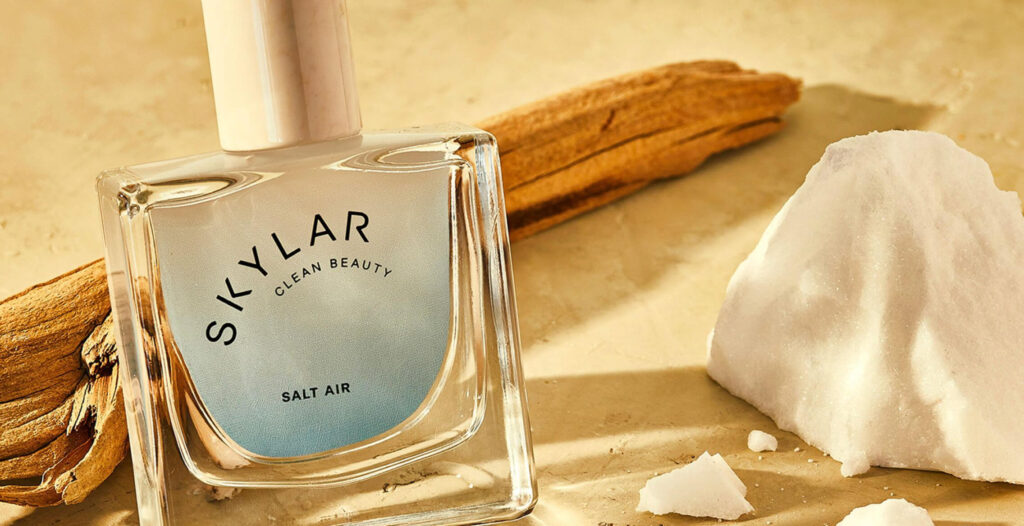
Skylar perfumes are also cruelty-free and vegan, making them a popular choice for eco-conscious consumers with allergies.
Lavanila The Healthy Fragrance
- Why It’s Great: Lavanila fragrances are formulated with all-natural ingredients and avoid harsh chemicals.
- Best Scents: “Vanilla Coconut” and “Pure Vanilla” are top picks, offering soft, cozy scents without overpowering.
- Where to Buy: Find Lavanila on Amazon and Ulta.
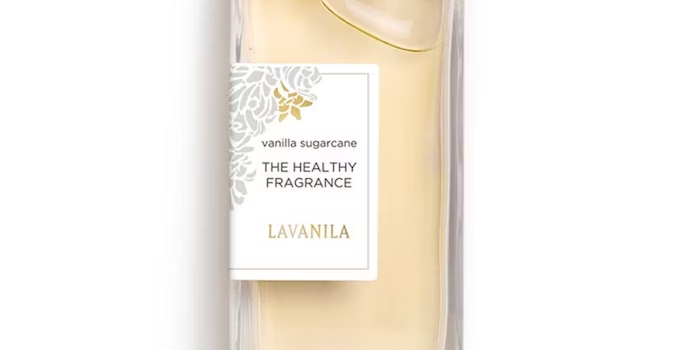
Lavanila products are free from synthetic fragrances and made with essential oils, which can be easier on sensitive noses.
Henry Rose Perfumes
- Why It’s Great: Founded by actress Michelle Pfeiffer, Henry Rose is committed to safe, hypoallergenic fragrances that are EWG Verified.
- Best Scents: “Jake’s House” is a fresh, aquatic scent, while “Last Light” offers a soft floral profile.
- Where to Buy: Available on Henry Rose’s Official Website.
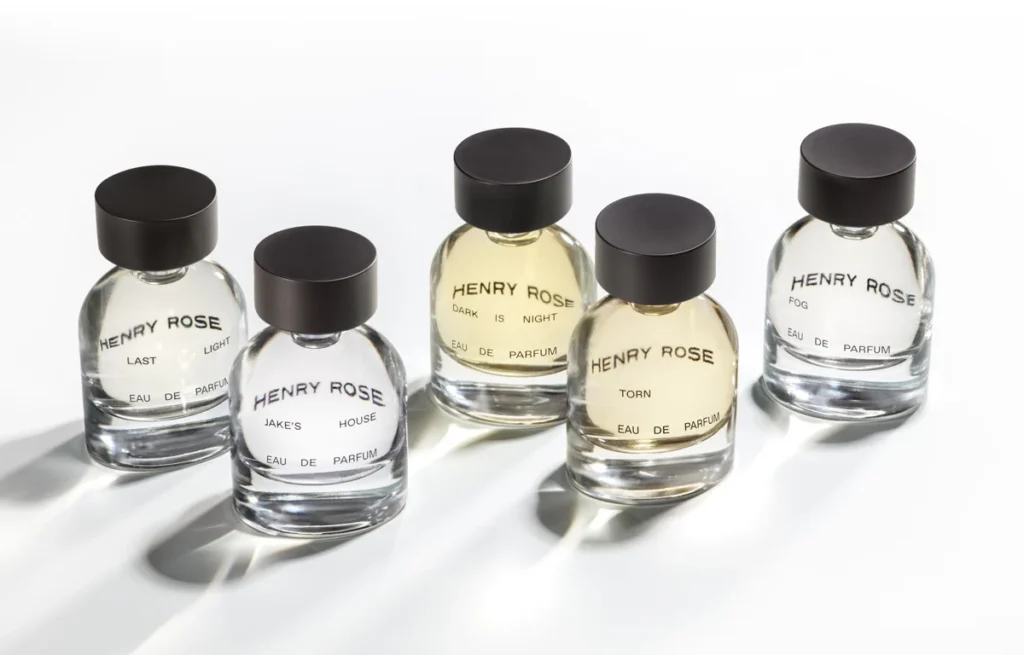
Henry Rose is one of the few fragrance brands with complete transparency, listing all ingredients on the label for peace of mind.
Clean Reserve
- Why It’s Great: Clean Reserve fragrances are hypoallergenic and free from harsh chemicals, with sustainable sourcing practices.
- Best Scents: “Rain” for a fresh, airy scent or “Warm Cotton” for a cozy, laundry-inspired fragrance.
- Where to Buy: Available at Sephora and Clean Beauty Collective.
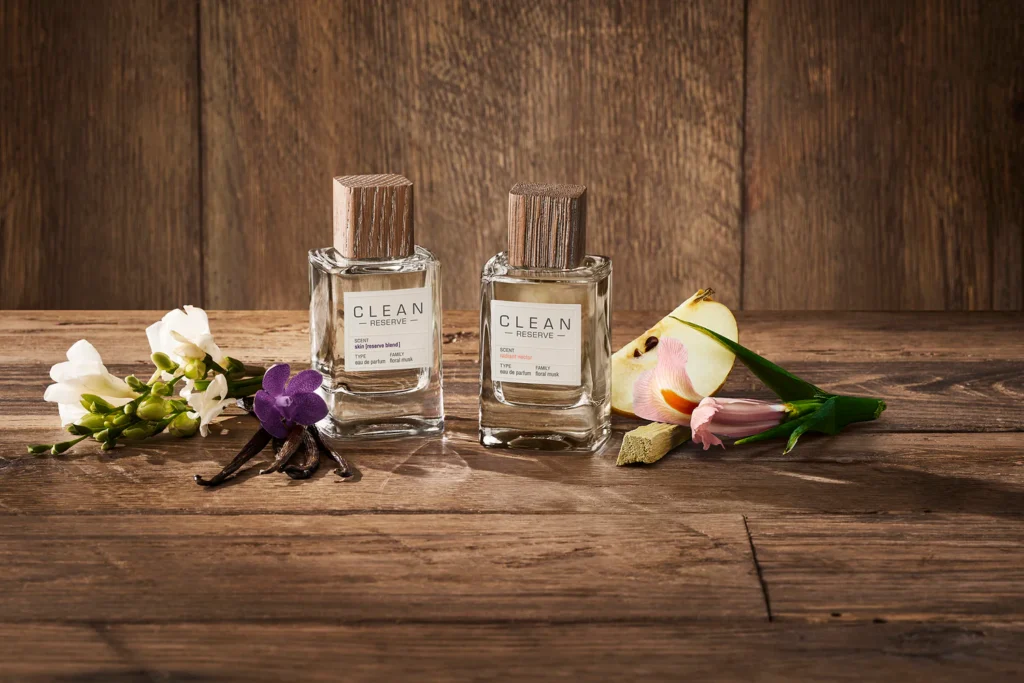
These fragrances are also great for layering, allowing you to create a unique scent that won’t trigger allergies.
DefineMe Fragrance
- Why It’s Great: DefineMe uses clean, vegan, cruelty-free ingredients in all its perfumes, with light, non-irritating scents.
- Best Scents: “Harper” has a delicate mix of grapefruit and neroli, while “Audry” is a blend of pear and jasmine.
- Where to Buy: Find DefineMe on Ulta and DefineMe’s Official Site.
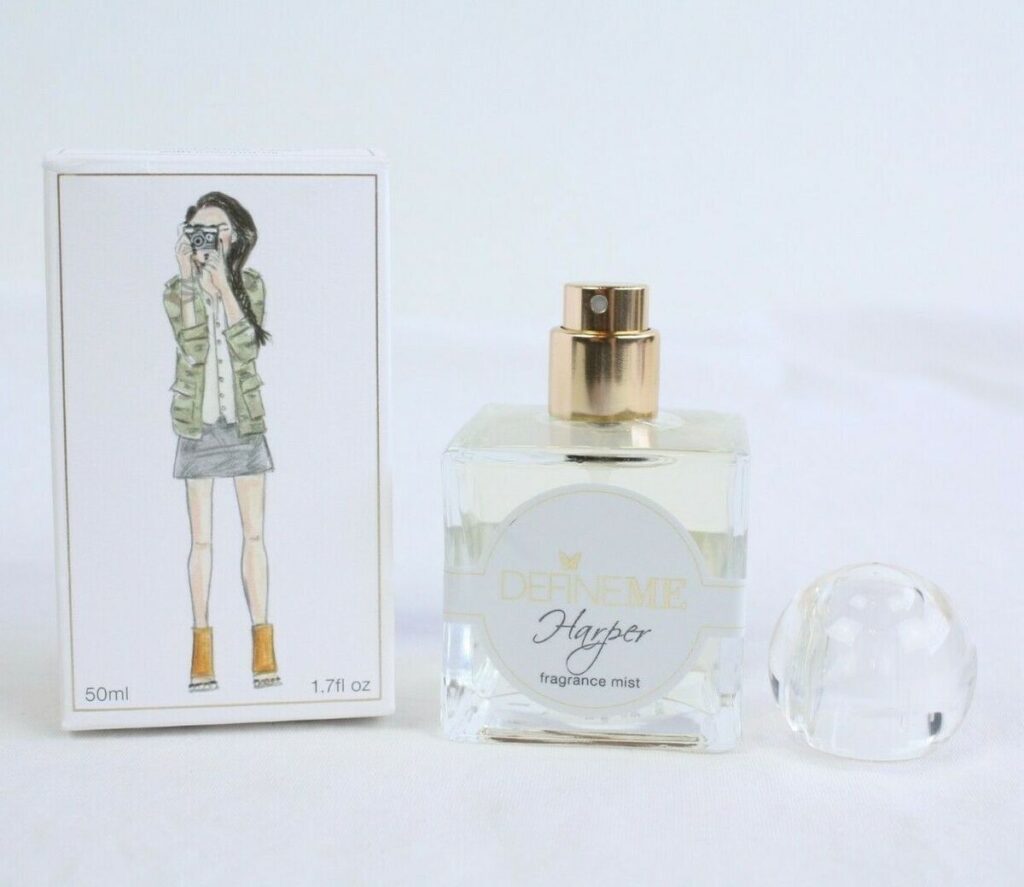
Each DefineMe fragrance is crafted to be gentle on sensitive skin while offering long-lasting wear.
Aveda Pure-Fume™ Aroma
- Why It’s Great: Known for using natural, plant-based ingredients, Aveda’s Pure-Fume aromas are soft, earthy, and hypoallergenic.
- Best Scents: Try “Shampure” for a calming blend of lavender and ylang-ylang.
- Where to Buy: Available on Aveda’s Official Website.
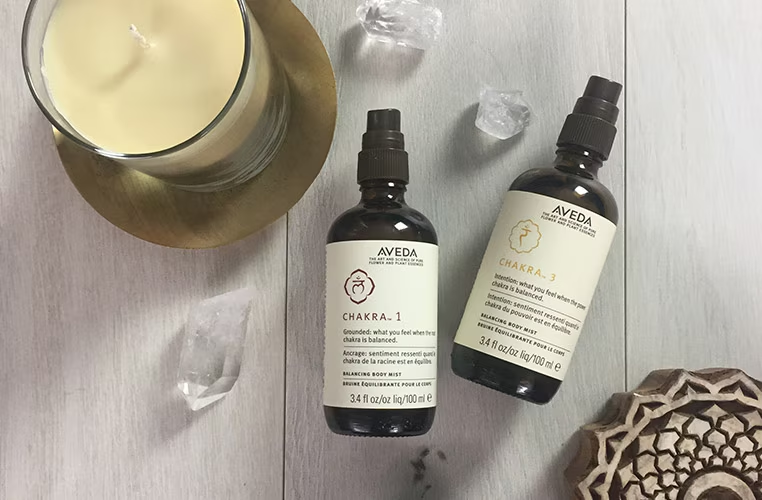
Aveda’s commitment to clean beauty makes it a reliable choice for anyone looking for a gentle, allergy-friendly perfume.
Heretic Parfum
- Why It’s Great: Heretic Parfum creates non-toxic, natural fragrances free from synthetic ingredients.
- Best Scents: “Dirty Lemon” for a zesty, citrus scent and “Dirty Rose” for a soft, floral touch.
- Where to Buy: Available on Heretic Parfum’s Website.
These perfumes are vegan and cruelty-free, perfect for those seeking a more natural fragrance experience.
Maison Louis Marie Perfume Oils
- Why It’s Great: Maison Louis Marie offers hypoallergenic perfume oils that are gentle on sensitive skin and free from phthalates.
- Best Scents: “No.04 Bois de Balincourt” is a warm, woody scent that’s both subtle and comforting.
- Where to Buy: Available at Sephora and Maison Louis Marie.
Perfume oils can be a great option for allergy sufferers since they are often more subtle and less likely to cause reactions.
Aromatherapy Associates Fine Fragrance Collection
- Why It’s Great: Aromatherapy Associates specializes in fragrance blends that use essential oils, making them gentle and relaxing.
- Best Scents: “Forest Therapy” for a calming, woody scent and “Rose” for a classic, soothing floral.
- Where to Buy: Available on Aromatherapy Associates.
These essential oil-based perfumes are ideal for sensitive skin and provide aromatherapeutic benefits.
Phlur Perfumes
- Why It’s Great: Phlur offers hypoallergenic, sustainably made fragrances that are free from common allergens and irritants.
- Best Scents: “Hanami” is a light, watery scent, and “Moab” offers warm, earthy notes.
- Where to Buy: Shop Phlur on Phlur’s Website and Sephora.
Phlur’s commitment to transparency and allergen-free ingredients makes it a trusted brand for fragrance lovers with sensitivities.
Additional Tips for Allergy Sufferers Using Perfume
Here are a few extra tips to help you enjoy fragrances without irritation:
- Use Perfume Oils: Perfume oils tend to be gentler and often have fewer ingredients that could irritate sensitive skin.
- Spray on Clothes: If you’re worried about skin reactions, try spraying perfume on your clothing instead of directly on your skin.
- Check Ingredients: Always read the ingredients list and avoid known irritants like parabens, sulfates, or artificial dyes.
- Opt for Lighter Scents: Softer, more subtle scents are less likely to trigger allergies than strong, intense perfumes.
Conclusion: Enjoy Perfume Without Allergies
Having allergies doesn’t mean you have to give up wearing perfume! With so many hypoallergenic and clean beauty options available, you can still find a scent that suits your style without causing discomfort. Whether you prefer fresh, floral, or earthy scents, the perfumes in this list offer something for every fragrance lover with allergies.
Try It Out: Remember to do a patch test with any new fragrance, and enjoy the process of finding the perfect scent that works for you.
FAQ: 10 Best Perfumes for Allergy Sufferers: Smell Amazing Without the Sneezes!
- What makes a perfume suitable for allergy sufferers?
Perfumes suitable for allergy sufferers are usually labeled as hypoallergenic, meaning they’re designed to reduce the likelihood of causing allergic reactions. These perfumes typically avoid common allergens and irritants such as synthetic fragrances, parabens, phthalates, and dyes. Many allergy-friendly perfumes use natural ingredients or essential oils, which are gentler on sensitive skin and less likely to trigger sneezing, itching, or headaches. Dermatologist-tested options can also be beneficial, as they’re formulated to be safe for sensitive skin.
- How can I tell if a perfume is truly hypoallergenic?
To ensure a perfume is hypoallergenic, check for labels or terms like “hypoallergenic,” “dermatologist-tested,” “non-toxic,” and “fragrance-free” on the bottle or packaging. Many brands that cater to sensitive users will also have transparency about their ingredients, often listing them directly on the bottle or website. Perfumes certified by organizations like the Environmental Working Group (EWG) or bearing certifications such as cruelty-free or vegan are more likely to use safe, natural ingredients that are gentler on the skin and respiratory system.
- Can I still wear perfume if I have sensitive skin or a fragrance allergy?
Yes, many people with sensitive skin or fragrance allergies can still wear perfume if they choose hypoallergenic, natural, or lightly-scented options. Look for products with fewer synthetic additives, essential oil blends, and clean beauty certifications, as these are designed to minimize reactions. Applying perfume to clothes rather than directly on the skin is another effective method for reducing irritation. Always start by testing a small amount of perfume on a patch of skin to ensure there is no adverse reaction.
- Are natural or essential oil-based perfumes better for allergy sufferers?
Natural perfumes or those made with essential oils can be gentler on sensitive skin and noses because they generally lack synthetic chemicals and artificial additives. However, it’s important to note that even natural ingredients and essential oils can cause reactions in some people. Essential oils like lavender, eucalyptus, or citrus can occasionally cause skin or respiratory irritation. If you’re sensitive, try perfumes that feature soft, subtle notes and conduct a patch test before wearing them regularly.
- What are some common ingredients that allergy sufferers should avoid in perfumes?
Allergy sufferers should avoid perfumes with synthetic fragrances, parabens, phthalates, formaldehyde, and certain alcohols, as these can irritate sensitive skin and cause respiratory reactions. Additionally, perfumes with strong notes or compounds such as aldehydes (which give perfumes a sharp, powdery scent) and certain essential oils (like cinnamon or clove) can also trigger reactions. Always check ingredient labels carefully and avoid any known allergens that may trigger symptoms.
- How can I test a perfume to make sure it’s safe for my skin and allergies?
To safely test a new perfume, try a patch test. Apply a small amount of the fragrance to your inner wrist or elbow, where the skin is more sensitive. Wait 24 hours to observe any reactions, such as redness, itching, or bumps. If there are no reactions, it’s likely safe for you to use. For those with respiratory sensitivities, try smelling the perfume from the bottle without applying it and monitor for any sneezing or nasal irritation.
- Are there any specific perfume brands that specialize in hypoallergenic or allergy-friendly fragrances?
Yes, several brands are well-known for their hypoallergenic or clean beauty perfumes. Popular options include Skylar, Henry Rose, Clean Reserve, and DefineMe, all of which focus on using non-toxic, natural ingredients and avoiding synthetic irritants. These brands often list all ingredients clearly, making it easy to avoid allergens. Look for brands that emphasize transparency and certifications, like EWG Verified or dermatologist-tested labels, which can provide added peace of mind for allergy sufferers.
- Can I still enjoy a strong or long-lasting fragrance if I have allergies?
Yes, but if you’re sensitive to strong perfumes, it’s best to choose long-lasting fragrances that use subtle, soft notes instead of intense or overwhelming scents. Perfume oils and solid perfumes often provide a longer-lasting but milder scent, as they release fragrance gradually without overpowering. Look for options with soft floral, fresh, or lightly musky notes instead of intense spicy or fruity ones, as these tend to be gentler on the senses.
- What’s the best way to wear perfume if I’m worried about skin reactions?
If you’re prone to skin reactions, try applying perfume to your clothing or hair instead of directly on your skin. This helps you enjoy the scent without direct skin contact, reducing the chance of irritation. You can also apply fragrance to pulse points on areas where the skin is thicker, like behind your ears or on your collarbone. Another option is to use a rollerball or solid perfume, which allows for more controlled application and minimizes the risk of overexposure.
- Are there perfumes without any fragrance or with very mild scents?
Yes, there are perfumes specifically designed to have mild, almost undetectable scents that provide just a hint of freshness. Some brands create “barely there” or “skin scents,” which smell very light and are designed to blend subtly with your natural scent. Clean Reserve’s “Skin” and Henry Rose’s “Fog” are good examples of subtle fragrances. Additionally, you may find body sprays or mists with hypoallergenic ingredients that offer a milder scent compared to traditional perfumes.

